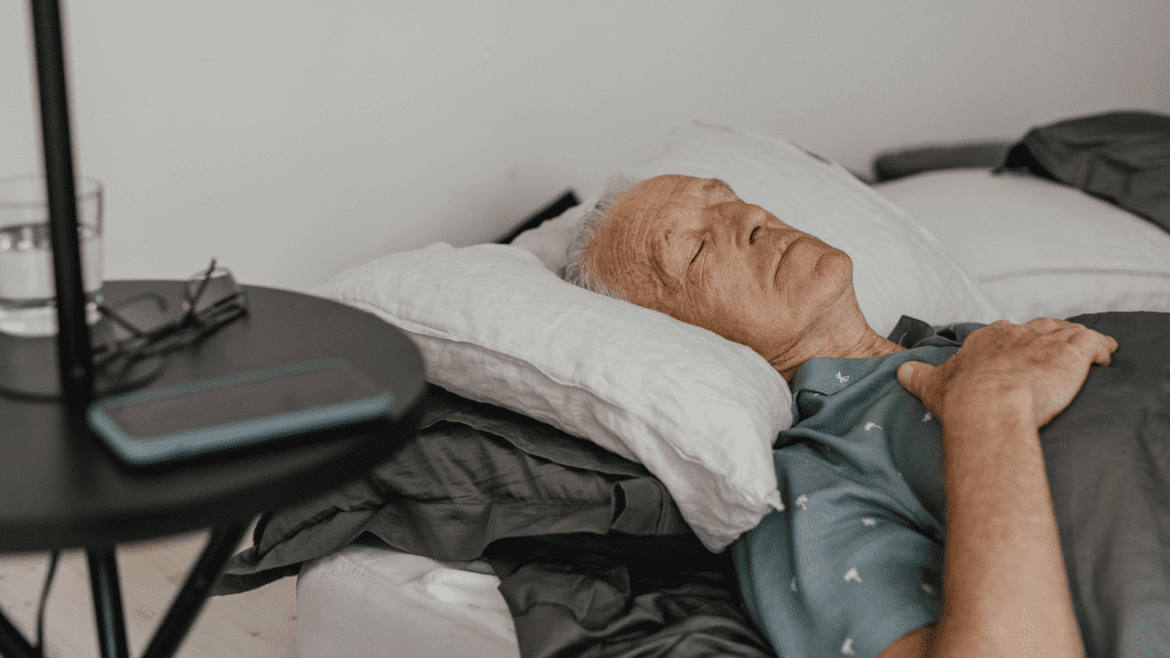Did you know that Leading Edge Senior Care has a Dementia Support Group? We meet monthly in Mesa. For more details <click here>
What Does It Mean For A Senior To Be Bedbound?
When a senior becomes bedbound, it marks a significant change in their life and daily routine. This condition, often a result of severe illness, injury, or advanced age, presents numerous challenges for the individual and their caregivers. Understanding what it means for a senior to be bedbound is crucial for providing appropriate care and ensuring their well-being.
Physical Health Implications
Being bedbound severely impacts a senior’s physical health. Immobility can lead to a host of complications, including muscle atrophy, pressure sores, and joint contractures. The lack of movement causes muscles to weaken and waste away, making it even more difficult for the individual to regain any lost mobility.
Pressure sores, also known as bedsores, develop due to prolonged pressure on the skin, especially over bony areas. These sores can be painful and, if not properly managed, can lead to serious infections. Joint contractures, where the joints become permanently stiff and immobile, are another common issue. These complications highlight the necessity of regular repositioning, physical therapy, and proper bedding to alleviate pressure and promote circulation.
Emotional and Psychological Impact
The emotional and psychological toll of being bedbound can be profound. Many seniors experience feelings of isolation, depression, and anxiety due to their limited ability to engage in social activities and maintain independence.
The loss of mobility often means they can no longer participate in activities they once enjoyed, leading to a sense of loss and frustration. It’s essential for caregivers to provide emotional support, engage in regular conversations, and facilitate social interactions, even if they are limited to the bed. Creating a positive and stimulating environment can significantly improve the senior’s mood and overall mental health.
The Role of Caregivers
Caregivers play a vital role in the life of a bedbound senior. Their responsibilities go beyond basic physical care; they must also address the emotional and social needs of the individual. Daily tasks such as bathing, dressing, and feeding require patience and sensitivity. Caregivers must be vigilant in monitoring the senior’s skin condition, ensuring proper nutrition, and maintaining hygiene to prevent infections.
They also need to encourage and assist with range-of-motion exercises to prevent joint stiffness and maintain some level of muscle strength. Caregiving for a bedbound senior can be demanding and emotionally draining, making it important for caregivers to seek support and take breaks to avoid burnout.
Medical Management
Regular medical care is essential for bedbound seniors. They require frequent check-ups to monitor their overall health and manage any underlying conditions. Medical professionals can provide guidance on proper care techniques, pain management, and the prevention of complications.
In some cases, specialized equipment such as adjustable beds, pressure-relieving mattresses, and mobility aids may be necessary to improve comfort and prevent further health issues. Home healthcare services can also be beneficial, offering professional medical care and support in the home setting.
Nutrition and Hydration
Proper nutrition and hydration are critical for the health of a bedbound senior. Malnutrition and dehydration can exacerbate existing health problems and lead to new ones. Caregivers must ensure that the senior receives a balanced diet tailored to their specific needs.
This may include high-protein foods to support muscle health, fiber to prevent constipation, and adequate fluid intake to stay hydrated. In some cases, dietary supplements or special feeding methods, such as pureed diets or feeding tubes, may be necessary to meet nutritional needs.
Adapting the Living Environment
Adapting the living environment to accommodate a bedbound senior is crucial for their comfort and safety. This includes ensuring that the bed is easily accessible and equipped with necessary aids like bed rails or lift systems.
The room should be organized to keep essential items within reach, reducing the need for movement that could cause injury. Additionally, creating a pleasant and stimulating environment with access to natural light, fresh air, and personal belongings can enhance the senior’s quality of life.
Conclusion
Being bedbound significantly alters a senior’s life, presenting numerous physical, emotional, and logistical challenges. However, with the right care and support, it is possible to manage these challenges and ensure a good quality of life.
Understanding the implications of being bedbound allows caregivers to provide comprehensive care that addresses both the physical and emotional needs of the senior, fostering a supportive and nurturing environment.

